Ethiopia, Kayon Mountain Farm Coffee Beans
Deets
- Country
- Oromia, Guji, Ethiopia
- Elevation
- 1900-2200m
- Processing Method
- Washed
- Variety
- Heirloom
- Harvest Period
- November 2023 - January 2024
- Moisture Content
- 10.8%
- Water Activity
- 0.51
Tasting Notes
Description
Kayon is translated to mean “Goal” which shows the determination of Ismel Hassen and his family to produce some great coffees since 2012. Single estate gems like this are quite rare from Ethiopia because of the small farm size of typical farms. This Kayon Mountain coffee is actually from a co owned family farm in Shakisso.
We have been purchasing Kayon Mountain coffees since 2020, and every year they are exporting stunners. This washed Kayon is no exception.
The Kayon Mountain Coffee Farm is 500 hectares with about 300 hectares planted in coffee. It is located about 510 kilometers south of Addis Ababa, in the Oromia region of Guji. Ismel oversees a staff of 25 permanent full time employees and around 300 seasonal workers. Ismel and his family offer free transportation to get seasonal works to the farm as well as financial support for building schools and administration buildings for the community. Ismel tends to pay higher wages in order to incentivize people to come back year after year to work his farm. The higher wages result in better quality in the hand-picking process. Just another reason to love Kayon Mountain Coffee Farm.
More Coffee
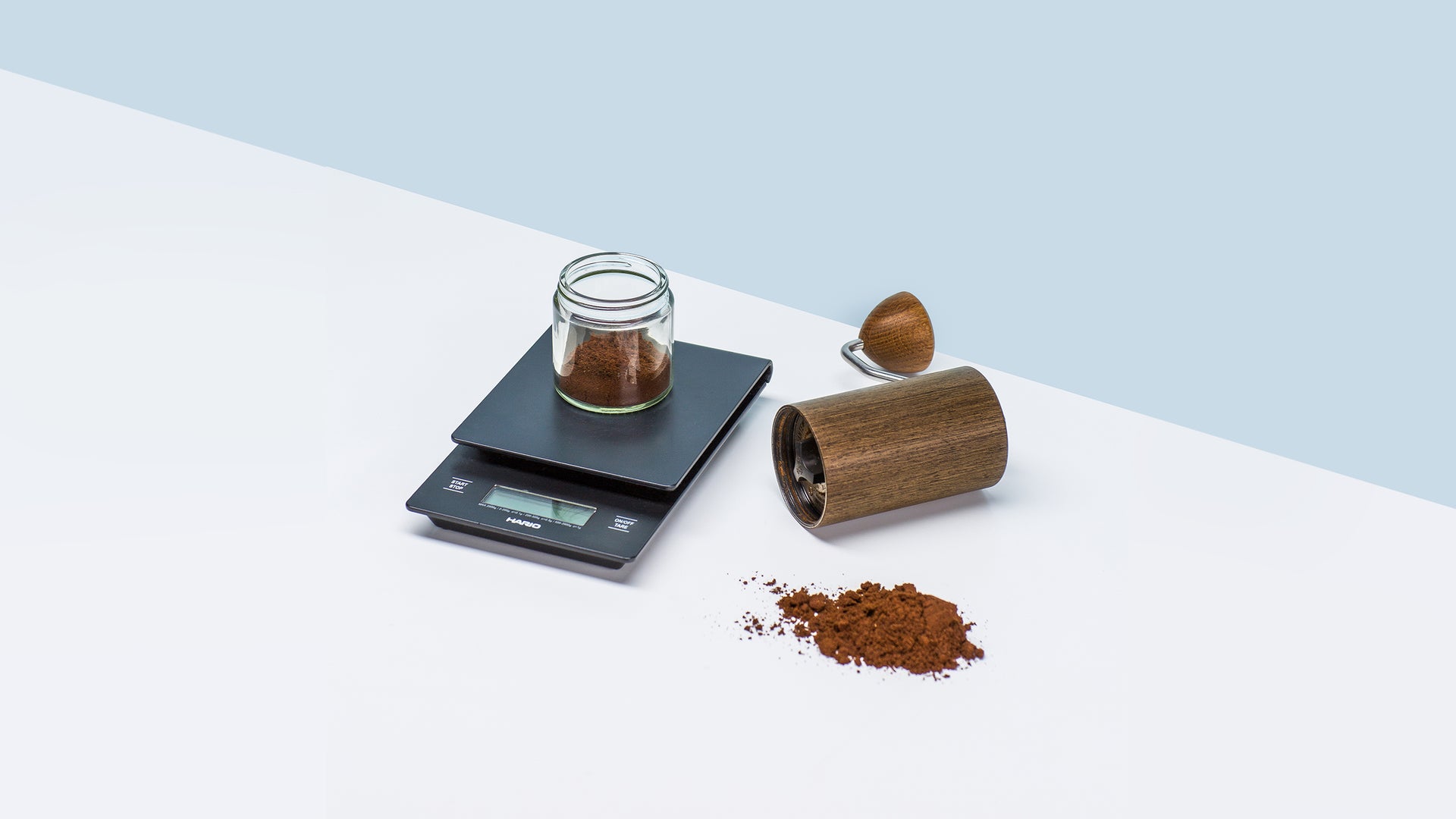
Individual Bags

Tasting Notes

Tasting Notes

Tasting Notes

Tasting Notes
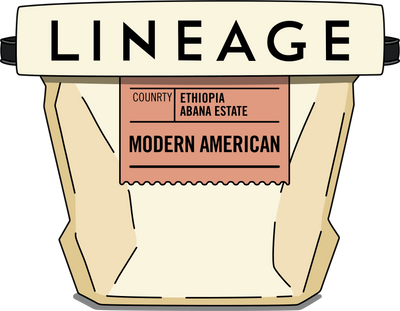
Tasting Notes
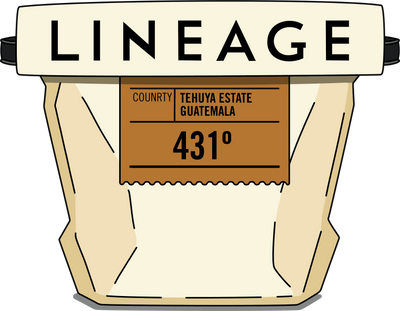
Tasting Notes
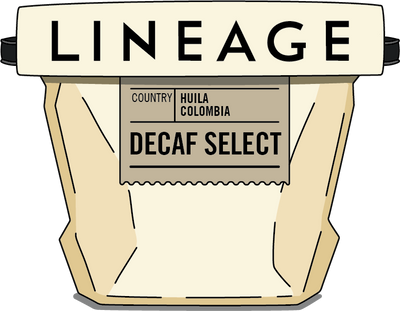
Tasting Notes
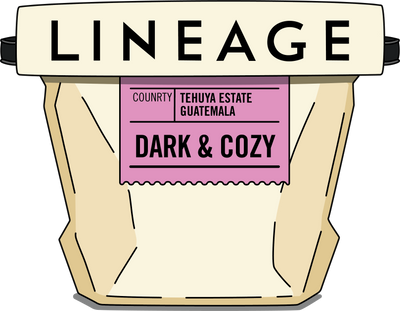
Tasting Notes
Coffee Subscriptions
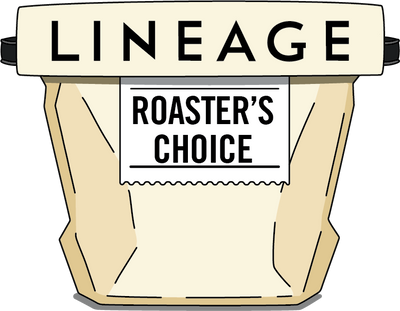
250g Bag
You select how often you want a delivery, we do the rest. One flat price plus shipping. We give you a new, unique single-plot coffee from our selection that’s hot off the roaster. You get it delivered straight to your door at peak roast time.
Subscribers will get to sample all of our current roasts, except for our Modern American and 431. In addition, we’ll include our limited-edition roasts in your subscription at no extra charge to you. Most of the time these never make the online store, and are only in our shop for a short period.
For freshness, we recommend getting shipments as frequently as possible. Cancel or change your subscription any time, no charge (you’ll receive instructions via email).
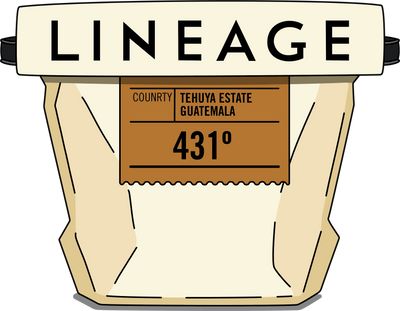
As a coffee roasting company, our passion is to always highlight the flavors that are unique to each region, processing style, and variety and this is most commonly done with lighter trending roast styles. The 431 is the only coffee that we showcase with what a well done slightly darker roast should taste like. The components are rotating quarterly to continue our vision of seasonality in coffee.
In 2019, is when we first had the opportunity to visit Guatemala. We arrived at the Guatemala City airport and immediately drove about three hours west to a small town on one of the most beautiful lakes in the world, Lago Atitlan. Perched on the cliffs surrounding the lake is a small town called Panajachel where we stay while visiting San Isidro Chacaya farm. After a few days we drove back east to Acatenango to Tehuya Estate.
The former president of Anacafe (the Guatemala coffee association) Miguel Medina grows a varietal focused, shade covered, wild forest feeling plot of coffee. With unique shade trees and innovative employee practices, the quality is always top notch from year to year. Lineage has a great opportunity to work closely with Miguel to contract parcel of the land to be farmed exclusively for us. Miguel is also open to doing experimental lots and always delivers on stunning coffees.
This coffee is very special and could be roasted light and still be incredible but because of the sweetness in the cup and density of the bean it tastes even better when roasted a little heavier to our 431 espresso profile.

This installment of our Modern American espresso roast comes from our good friends over at Abana Estate in Gera, Limu, Ethiopia. This is an Heirloom variety, but more specifically Metu Bishari Selections, Gera Selections, and Merdacheriko. Ethiopia has a rich variety of unique heirloom varieties and although most of Abana’s harvest can be traced to specific varieties they have personally selected, there are many unique and wild coffees included. Each lot is hand sorted multiple times and processed with attention to detail. All of their washed milling is done in Addis Ababa. All sorting and milling is completed to Grade 1 in Addis Ababa to less than 1% defect for all coffees.
After picking and hand sorting, the coffees are floated, demucilated (takes off all pulp and mucilage), washed in the channels, and brought out to the temporary drying beds for 24 hours before being brought to the normal raised drying beds. These lots are agitated several times a day for even drying and hand sorted a few more times on the table while drying. After the coffee in parchment reaches 11-12% moisture they are brought to our conditioning warehouse to equalize all moisture prior to bagging for the mill.
The attention to detail is the reason why this coffee shines and is an absolute banger as an espresso style roast. The citrus peach notes really balance well with the sweet milk chocolate produced from the longer slower roast profile. Although this is the perfect coffee to enjoy on espresso, it is also excellent on drip or batch brew.
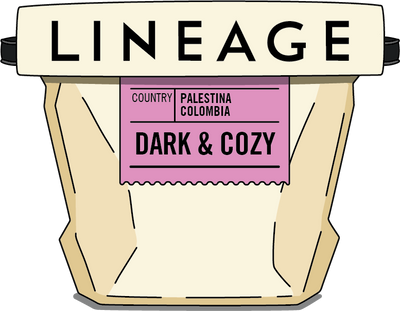
A true dark roast. Dark & Cozy is that comfy dark roast coffee that is easy to sip on. It is perfect with cream and/or sugar as well as just drinking it black, if that is how you roll. The level of the roast really breaks through the thickness of the milk or creamer, giving it that perfect coffee taste that we all want.
When looking for what coffee to use, our main priority is to find a coffee with high density and a good amount of sweetness. The density of the coffee will be able to hold up in the roaster and not get burnt with the level of roast we are doing. Having enough sweetness is also good so that we can keep the coffee balanced even with a darker roast.
We roast this coffee up until we enter the second crack for about 15 seconds, give or take. This will allow us to get all the benefits and flavors of that dark roast without damaging the bean too much or getting to the point where we are actually burning the bean. At this point in the roast, oils within the bean will begin to migrate to the surface due to the bean being much more porous from the heat. We finish the batch of coffee just before this starts to happen so that when the coffee is done, it doesn't become too oily in the packaging. Even at such a dark roast there is a lot of thought that goes into how we roast it.
This coffee has been a staple at our roastery for awhile now. It has gotten us through many early mornings and late nights of roasting. We hope you enjoy Dark & Cozy.
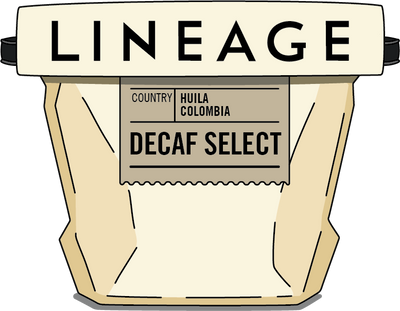
250g bags are now available for in store pick up!
When it comes to decaf, there is no better way to process decaf coffee than Ethyl Acetate. We believe this process to be the best natural way to decaffeinate a coffee without taking away from the flavor or the structural integrity of the bean. Swiss Water Process is another natural way to decaffeinate coffee, however this process damages the structure of the beans in a way that greatly affects the quality and flavor of the coffee. One other well known way of decaffeinating coffee is Methylene Chloride. This process uses chemicals not only harms the coffee, but probably not good for your health either.
Below is a quick explanation of the process provided by Cafe Imports.
Ethyl Acetate (E.A.) – This naturally occurring ester (present in bananas as well as a by-product of fermented sugars) can be isolated and used as a solvent to bond with and remove caffeine from green coffee. First, the coffee is sorted and steamed for 30 minutes under low pressure in order to open the coffee seeds’ pores and prepare them for decaffeination. The coffee is placed in a solution of both water and ethyl acetate, where the E.A. will begin to bond with the salts of chlorogenic acids inside the seeds. The tank will be drained and re-filled over the course of eight hours until the caffeine is no longer detected. The seeds are steamed once more to remove the ethyl acetate traces, though E.A. is only harmful to humans in very high quantities (400 parts per million or more). The coffee is then dried and polished for export.